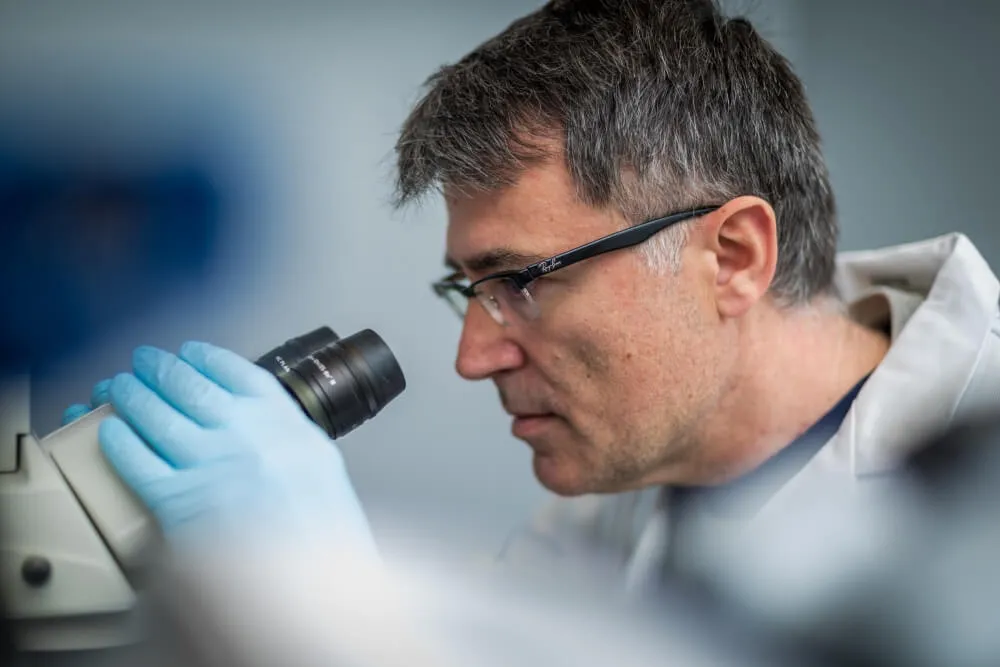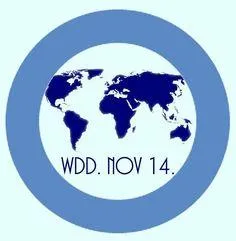He has been working in the United States for 20 years, mainly in Harvard (Boston), and although there are thousands of kilometers that separate him from his homeland, Mallorca, he is like fish in the water in a city where science and research is breathed and where, where,From time to time, from the window of your house you can see how the deer walk in the street.
Pere Puigserver, an attached professor of Cell Biology at the Faculty of Medicine of Harvard, studies the genetic and biochemical mechanisms that are behind the metabolism of nutrients.This work has linked to cancer research but, above all, in diabetes and obesity.
What connection is between cancer and diabetes?
My laboratory is in the Dana-Farber Cancer Institute, which is a cancer institute and we are coined to the Harvard Medical School.In the laboratory we are two dozen people, two or three are studying cancer, but most work with metabolism.And yes, there is a fairly important connection between metabolism and cancer and, therefore, between diabetes and cancer.In fact, one of the lines that the United States government has is to enhance the relationship between obesity, diabetes and cancer.Because it has been seen that people with diabetes are more risk of cancer.But at the molecular level, your connection is not too clear.Some lines of research point to inflammation with bond link.The more inflammation there is in certain fabrics, the greater the propensity to certain types of cancer.And when there are diabetes, there is inflammation.Another theory points to what high levels of insulin activate proliferation mechanisms and this, together with an oncogenic factor, can enhance cancer formation.
Why is inflammation behind many diseases?
To explain this you have to step back.There are two theories about the causes for insulin resistance.One is inflammation.That is, when there is a high accumulation of lipids in adipose tissue, muscle and liver, an inflammatory mechanism is generated that recruits all cells of the immune system and this creates inflammation, which could be the cause of insulin resistance.The second theory points to lipids.When tissues such as muscle or liver accumulate lipids there is a deficiency in its oxidation that gives rise to other lipids that interfere with the signage of insulin and generates a malfunction of it.In my opinion, what generates inflammation, in the first place, is an excess of lipids in adipose tissue.Insulin in this tissue works to increase glucose collection and store lipids, if there is insulin resistance, this does not work and creates hypertriglyceridemia and this in turn generates a metabolic syndrome.
There are nutritionists who say that the best diet is that composed of food whose glycemic index is low so as not to generate many insulin peaks.What do you think about this?
This would be to prevent the pancreas, which is the first glucose sensor, not constantly stimulated because, otherwise, it loses its glucose sensitivity, which is what happens in diabetes.
Is that constant stimulation that produce the diets rich in fats and sugars?
Yes, especially those rich in sugars, which is the best insulin stimulant.Fat is less powerful.In fact, if you eat only fat without sugars, in mice in which such a weight diet has been tested and is more sensitive to insulin.Fat consumption per is not too affected by insulin.What happens is that fat has harmful effects on the pancreas, what is called the pancreas lipotoxicity, and if there is only fat can cause this toxicity chronically, that is, the death of pancreas cells.
In recent months,Experts and health authorities are putting more focus on sugar, as a health danger, do you agree?
Excess sugar accumulates in fat.We are in a society that always has food available, before it was not so and that is why the survival mechanism of the human species has been to store fat in the fabric for when there were hunger periods to be able to use it.But in our society, this is harmful because sugar is preserved in the form of fat and when it is stored in tissues where it should not be accumulated generates insulin resistance.That is the biggest problem of high consumption in sugars.Excess sugar is not a sugar problem but fat, because at first it accumulates as sugar, which is called glycogen, but when it is excessive it becomes fat, that is, pure and hard sugar is preserved in a mass offat.Scientific studies, such as Predimed, are confirming that a certain type of fat, such as olive oil or the fats of nuts, are linked to better weight control and less risk of diabetes.Animal fats tend more to accumulate and do not have a thermogenic effect.Oleic acid that is a very high component in olive oil, in addition to generating calories, produces a thermogenic effect, that is, helps self -xidation, so its effect is beneficial because it does not accumulate.The body has a greater capacity to oxidize these types of fatty acids.
What is more negative for diabetes excess calories or type of food that is ingested?
I think the two things are important.It will depend on whether the calories that are ingested are used.If one ingests 5,000 calories daily and then spends 3,000 in the gym, then it is perfect.It also depends a little on muscle mass.The most glucose tissue consumes in the organism is the muscle, if one has a lot of muscle mass can absorb much more glucose.But, if those calories do not burn, accumulation of lipids, their bad oxidation and the formation of diabetes are generated.I think the balance is important, more than the type of food.In the end, the number of calories is more important.Because if you take a lot of fruit, too much, it is equally harmful as a sweet.If many calories are taken, the body has to be able to oxidize this excess of calories.If I had to apply it to my health, the number of calories encourages it most important.But it also has a sociological appearance, that is, people who tend to eat more balanced diets in general also do more exercise.On a scientific level, there is an interesting issue: what is better to eat many calories and then burn them or exercise less and eat less?From an experimental point of view and at the aging level, the data argue that it is better to eat less and not exercise.Because if you are subjecting the body to a high level of operation, at the end the wear of the machinery is much greater.
What do you think of sweeteners?
My training in this is limited.I remember a study a few years ago from a group here that saw that sweeteners although they do not produce sufficient energy content help the accumulation of fats.Although they do not have energy content, they can alter certain mechanisms that accelerate fat production.But this was a specific study and I don't follow this topic.
A few weeks ago an alliance has been announced to fight four diseases: lupus, diabetes, Alzheimer's and rheumatoid arthritis.What do you think of this alliance?
It is very good because the perfect function of academic and laboratory groups is collaboration with the industry, since it has the information and a capacity that our laboratories do not have.The idea is to get to a point that the pharmaceutical industryAbsorb this information to then develop chemical compounds, because once they have a component to design drugs are much more powerful than any academic group.What happens is that many times they do not have the creativity or flexibility that other groups can have.That is why I believe that this collaboration is perfect, because it generates greater capacity.
Does the fight against diabetes go hand in hand with the fight against aging?
Sometimes it is confused.In mice it has been shown that when insulin when it works too much generates aging.In humans, one could not say then that diabetics would have to live more (not working their insulin well) because diabetes has other clinical problems: cardiovascular, etc.There is this paradox.The message is that one needs insulin to work but, if we work too chronic, then create aging, even independently of diabetes.A mechanism that can explain this is the caloric restriction that induces longevity, something proven in animals.Because when you eat less you have fewer insulin peaks.If there is supernutrition chronic, insulin secretion is activated constantly and aging is accelerated.With caloric restriction, you have less increase in insulin level and less times, which makes the body very sensitive to insulin but with very low levels, and this is linked to protection against aging.
You study the signaling routes, are all the signs involved in metabolism known?
A lot is known from the point of view of diabetes, all routes and signs of how it works.The great issue is what are the genetic causes that lead to diabetes.I think we have all the pieces, the big problem is that we do not know what is the cause of these components altering.In cancer more of genetic causes are known and this makes drugs against specific components can be designed.In the diabetic or inflammatory cell it is much more difficult, we know the altered components but not the genetic causes or which is the best protein or process of this signage to combat diabetes, obesity or attenuate inflammation.
How long will these doubts be answered?
It is difficult because there are many genes involved.You have to pursue what is done in cancer, where for each type of tumor a different treatment is applied.In addition, tumors are being sequenced.In the end, each patient's tumor will be sequenced and with this there will be a drug cocktail that will work only for this type of tumors or patients.It will be something customized.In diabetes we go behind, but we have to do something similar: know the most altered genes in each person and adapt the treatment.With this customization of medicine the treatment of diabetes will be directed.The big difference with cancer is that in the oncological field you can tolerate more aggressive treatments but, in diabetes, the government is much more reluctant because the drugs that already exist work more or less well, without too many side effects.All new research is very restricted because it has to develop better drugs than there are and that implies that they do not have side effects because the current ones are very safe.
Source: Link ;T=1394440131









